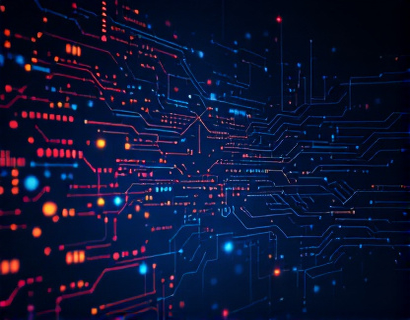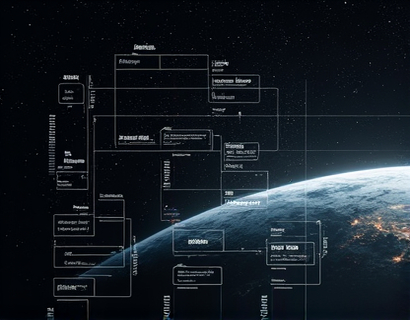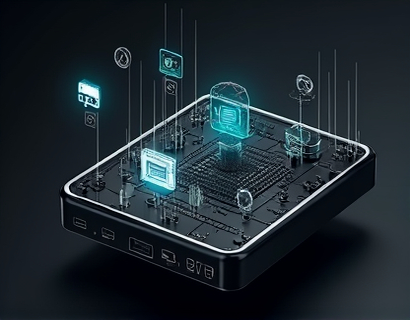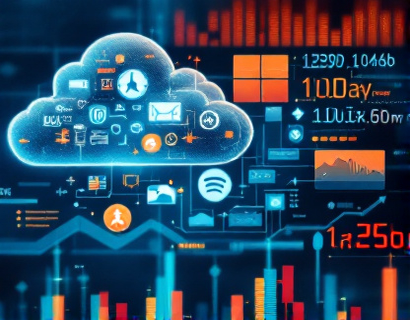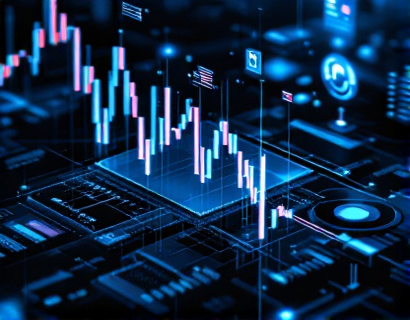Maximizing Engagement and Growth: Leveraging AI and Crypto for Digital Transformation in the Tech Frontier
The digital landscape is rapidly evolving, driven by the convergence of artificial intelligence (AI) and blockchain technology. Businesses and tech enthusiasts seeking to maximize engagement and growth must navigate this complex terrain with strategic insights. This article delves into the ways AI and crypto can be integrated to enhance online presence and drive substantial growth in the tech frontier. By understanding the synergies between these technologies, organizations can unlock new opportunities and stay ahead of the curve.
The integration of AI and blockchain offers a powerful combination that can transform various aspects of digital operations. AI brings intelligence, automation, and predictive capabilities, while blockchain provides security, transparency, and decentralization. Together, they create a robust framework for digital transformation. For businesses, this means not only improving internal processes but also enhancing customer experiences and building trust through secure and transparent interactions.
Understanding AI and Blockchain
Artificial intelligence encompasses a range of technologies designed to simulate human intelligence in machines. These include machine learning, natural language processing, and computer vision. AI systems can analyze vast amounts of data, identify patterns, and make decisions with minimal human intervention. This capability is particularly valuable in areas such as customer service, fraud detection, and personalized marketing.
Blockchain technology, on the other hand, is a decentralized ledger that records transactions across multiple computers. It ensures that data is immutable and transparent, reducing the risk of fraud and increasing trust. Blockchain's applications extend beyond cryptocurrencies to supply chain management, identity verification, and smart contracts. The combination of AI and blockchain can amplify these benefits, creating a more secure and intelligent digital ecosystem.
Enhancing Online Presence with AI and Blockchain
To maximize online presence, businesses must leverage the unique strengths of AI and blockchain. AI can optimize content creation and distribution, ensuring that the right messages reach the right audiences at the right times. By analyzing user behavior and preferences, AI algorithms can personalize content, improving engagement and conversion rates. Blockchain, meanwhile, can ensure that content is authentic and tamper-proof, building trust with users and partners.
For instance, a content management system powered by AI can curate and publish articles based on real-time data and user interactions. Blockchain can be used to verify the authenticity of content and reward creators through tokenization. This dual approach not only enhances the quality and relevance of content but also ensures its integrity, fostering a more engaged and loyal audience.
Driving Growth Through Decentralized Marketing
Decentralized marketing is a revolutionary approach that leverages blockchain to create more transparent and efficient marketing ecosystems. Traditional marketing often involves intermediaries that can distort messages and inflate costs. By using blockchain, businesses can directly interact with their audience, ensuring that marketing efforts are more targeted and effective.
AI can enhance decentralized marketing by analyzing user data to identify trends and preferences. This data can be used to create personalized marketing campaigns that resonate with specific audience segments. Smart contracts on the blockchain can automate the execution of marketing strategies, ensuring that campaigns run smoothly and transparently. The combination of AI and blockchain in marketing can lead to higher ROI and stronger brand loyalty.
Secure and Transparent Transactions
One of the most significant advantages of integrating AI and blockchain is the enhancement of transaction security and transparency. In the realm of e-commerce and digital payments, security is paramount. Blockchain's immutable ledger ensures that transactions are recorded accurately and cannot be altered, reducing the risk of fraud. AI can further bolster security by detecting and preventing suspicious activities in real-time.
For example, a payment processing system powered by AI and blockchain can analyze transaction patterns to identify potential fraud. AI algorithms can flag unusual activity and trigger verification processes, while blockchain ensures that all transactions are recorded transparently. This combination not only protects users but also builds confidence in digital transactions, encouraging more users to adopt these technologies.
Optimizing Supply Chain Management
Supply chain management is another area where AI and blockchain can drive significant improvements. Traditional supply chains are often opaque and inefficient, leading to delays, losses, and trust issues. By implementing blockchain, each step of the supply chain can be recorded in a transparent and verifiable manner. AI can optimize these processes by predicting demand, managing inventory, and streamlining logistics.
For instance, a supply chain platform using blockchain can track the movement of goods from manufacturer to consumer. Each transaction is recorded on the blockchain, providing a clear and tamper-proof history. AI can analyze this data to identify bottlenecks and optimize routes, reducing costs and improving delivery times. This level of transparency and efficiency can give businesses a competitive edge and enhance customer satisfaction.
Building Trust Through Decentralized Identity Verification
Identity verification is a critical component of digital interactions, but it is often fraught with challenges such as data breaches and identity theft. Blockchain-based identity verification systems can provide a secure and decentralized solution. Users have control over their personal data, and transactions are verified through cryptographic means, reducing the risk of fraud.
AI can complement this by analyzing behavioral patterns and biometric data to enhance security. For example, AI-powered authentication can use facial recognition or voice patterns to verify user identities. When combined with blockchain, this creates a robust system that protects user data and builds trust. Businesses that adopt such systems can differentiate themselves in a crowded market, attracting users who value privacy and security.
Fostering Innovation Through Tokenization
Tokenization is a powerful tool that leverages blockchain to represent assets in digital form. This can include everything from real estate and art to intellectual property and loyalty points. By tokenizing assets, businesses can create new revenue streams and foster innovation. AI can enhance tokenization by analyzing market trends and optimizing token pricing and distribution.
For instance, a platform that tokenizes real estate can use AI to analyze property values and market demand, setting optimal token prices. Users can buy, sell, and trade these tokens on a decentralized marketplace, facilitated by smart contracts. This not only increases liquidity but also makes investment more accessible. The combination of AI and blockchain in tokenization can unlock new opportunities for creators and investors alike.
Challenges and Considerations
While the potential benefits of integrating AI and blockchain are substantial, there are also challenges to consider. One of the primary concerns is the technical complexity involved in implementing these technologies. Businesses need to invest in skilled personnel and infrastructure to develop and maintain AI and blockchain solutions. Additionally, regulatory compliance is a critical factor, as the legal landscape for AI and blockchain is still evolving.
Another consideration is the ethical use of AI, particularly in areas such as data privacy and bias. Ensuring that AI systems are transparent and fair is essential for building trust with users. Businesses must also be mindful of the environmental impact of blockchain, especially proof-of-work systems, and explore more sustainable alternatives like proof-of-stake.
Strategic Implementation
To successfully integrate AI and blockchain, businesses should adopt a strategic approach. Start by identifying specific use cases where these technologies can add the most value. Conduct a thorough analysis of your current processes and identify pain points that AI and blockchain can address. Collaborate with experts in both fields to develop a roadmap for implementation.
Invest in training and development to build a team capable of managing and innovating with these technologies. Stay informed about the latest advancements and best practices in AI and blockchain. Pilot projects can help test and refine solutions before full-scale deployment. By taking a methodical and strategic approach, businesses can maximize the benefits of AI and blockchain integration.
Conclusion
The convergence of AI and blockchain represents a transformative force in the digital landscape. By leveraging these technologies, businesses can enhance engagement, drive growth, and stay ahead in the competitive tech frontier. The key lies in understanding the unique strengths of each technology and finding innovative ways to combine them. As the digital world continues to evolve, those who embrace AI and blockchain will be well-positioned to thrive and lead the way.




